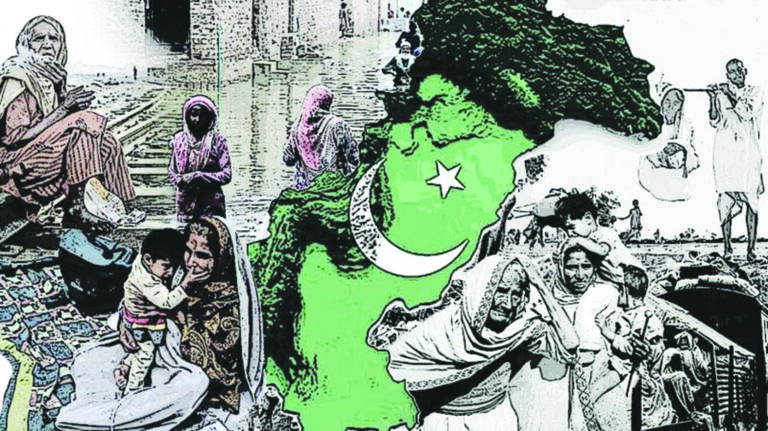By: Ataurehman Saman
In August 2024, Pakistan celebrated its 77th anniversary of independence, a milestone that marks a long and challenging journey. Since its creation in 1947, Pakistan has faced numerous hurdles—political instability, economic challenges, social upheavals, and crises in religious and judicial matters. Born from the partition of British India along religious lines, Pakistan began its existence in fragile conditions, confronting challenges that, in many ways, were more severe than those faced by neighboring India.
At the time of its founding, Pakistan was economically vulnerable, struggling with the resettlement of millions of refugees, internal violence, and political uncertainty. The death of the nation’s founding father, Quaid-e-Azam Muhammad Ali Jinnah, in 1948 compounded these difficulties, leaving a leadership vacuum and contributing to early political instability. Within three years of its creation, Pakistan was branded as a failed state by some observers. Yet, despite these early setbacks, the country has persevered and achieved significant milestones over the decades.
Economic and Political Milestones:
Since 1947, Pakistan’s literacy rate has risen dramatically, from a mere 12% to over 77% today. In addition to improvements in education, Pakistan has seen the establishment of key national institutions, including the National Bank of Pakistan, Pakistan International Airlines, and Pakistan Steel Mills. Major infrastructure projects, such as the construction of the Tarbela Dam and the development of the country’s nuclear program, are also testament to its progress.
In the political sphere, the country has oscillated between democratic governance and military rule. Despite multiple authoritarian regimes, the Pakistani people have consistently aspired for democracy. A significant turning point came under the leadership of Prime Minister Zulfikar Ali Bhutto, who not only introduced economic and social reforms but also successfully negotiated the release of territories and prisoners of war from India after the 1971 conflict.
The promulgation of the 1973 Constitution marked a major step forward, providing Pakistan with a parliamentary system of government that reinforced democracy and federalism. This framework aimed to strike a balance of power between the central government and provincial authorities, creating a platform for more inclusive governance.
The 18th Amendment and Provincial Autonomy:
In 2010, the passage of the 18th Amendment to the Constitution ushered in a significant shift in Pakistan’s governance. The amendment responded to long-standing demands for provincial autonomy by transferring substantial powers from the federal government to the provinces. Control over key areas, such as economic resources and education, was decentralized, addressing issues of centralization and resource allocation.
The 18th Amendment also removed the president’s authority to dissolve Parliament unilaterally, further solidifying the democratic structure. This move was seen as a major step in making the political system more representative and resilient, empowering provincial governments and reflecting Pakistan’s diverse regional interests.
Reflecting on Progress and Challenges:
As Pakistan marks 77 years of independence, it faces the need for introspection. The country stands at a crossroads, confronting political polarization, economic challenges, and social disparities. Embracing its religious and cultural diversity is key to fostering a more inclusive society. Unity and understanding across Pakistan’s various ethnic and religious groups are essential to moving beyond historical grievances.
This approach finds a parallel in the post-World War II reconciliation between Germany and France, which overcame a tumultuous past to forge a path of mutual prosperity. If Pakistan can similarly embrace resilience, adaptability, and inclusivity, it could create a sustainable future for its people.
As the nation reflects on its achievements and challenges, the focus remains on how best to navigate the complexities of the modern world while building on its history of resilience and progress.


